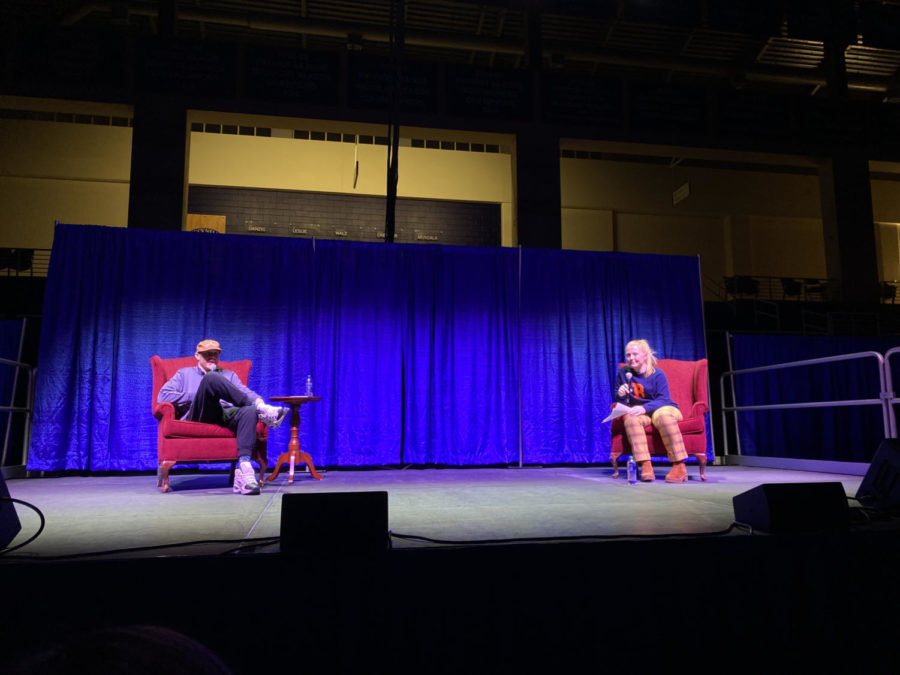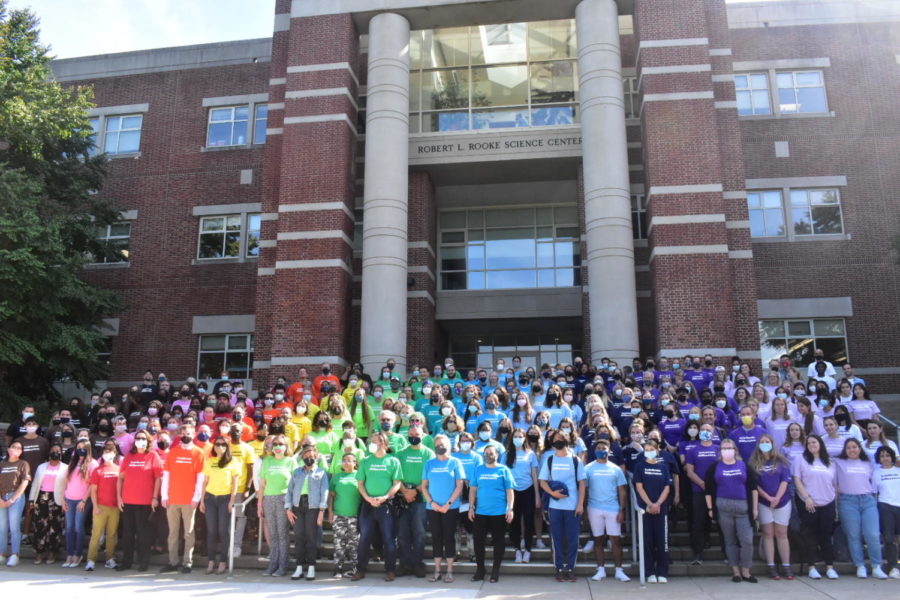W. Morris Fierman
News Editor
Despite a national trend of colleges and universities struggling to meet new requirements to deal with instances of sexual misconduct, several years of changing policies have put the University ahead of the curve.
The
Universities’ policies have been forced to evolve by a series of court decisions that made schools liable for dealing with and preventing sexual assault.
A 2007 suit filed against the University of Georgia initiated a precedent which placed the responsibility for responding to and actively preventing sexual misconduct firmly in institutions’ hands. A Federal Appeals Court ruled in favor of a student after she was raped by a fellow student who had a history of being removed from other schools for several sexual assaults.
Since the University of Georgia suit, cases at the University of North Carolina, the University of Colorado at Boulder and the University of Washington resulted in rulings against the schools and were filed specifically under Title IX. The Department of Education officially stated in April 2011 that it would be reinterpreting Title IX to include sexual assault as a form of gender-based discrimination.
University administrations have met the new legal obligations with varying amounts of success.
In early January, Senior Writer for the Daily Tar Heel, the student-run newspaper of the University of North Carolina, Caitlin McCabe was approached by two female students claiming that they had been sexually assaulted and were treated poorly and unfairly by the university administration. One of the students told McCabe that during her hearing in the university’s ‘Honor Court’ one administrator asked her why she had not simply broken up with her long-time boyfriend that was sexually and verbally abusive. She also believed that the members of the court implied that because of her psychological distress and a past suicide attempt, her account could not be trusted.
In a telephone interview with The Bucknellian, McCabe, whose coverage later attracted national media attention, said that her university has since hired several new staff members, including a “Title IX coordinator and a sexual assault investigator,” in an attempt to fix the broken policies, though so far there have been no additions to the slideshow about sexual assault shown to first-years during orientation for several years.
Mishandled cases such as this one come along with a national trend of changing conversation about sexual assault. Many universities have struggled to update programs and policies in the face of federal pressure to do so.
According to Director of the Women’s Resource Center Tracy Russell Shaynak, the University has been both supportive and proactive in working to make cultural changes that prevent sexual assault, and more changes are yet to come.
The Women’s Resource Center will soon be hiring an Interpersonal Violence Prevention Coordinator to oversee further improvements to sexual misconduct education programs at the University. Their salary will be paid for from a grant to the University from the Justice Department for $300,000, awarded to the school in the fall of 2012. The grant, which was applied for with the help of several administrative departments, professors and students, was a good indication from the federal government that the University’s efforts were moving toward the needed changes, according to Shaynak.
Considering the administration and President John Bravman’s actions on the issue of sexual assault, “I think we are very much headed in the right direction,” Shaynak said.
Students involved in the Speak UP Bucknell program, a program designed to educate students about sexual misconduct that is now entirely student run, have tended to agree with the University’s campaign.
“I think other schools shy away from publishing things like the Campus Climate Report, but they need to acknowledge the problem before anything can be done,” Laura Even ’14, a peer educator in the Speak UP program, referring to a report on student experiences at the University that includes a study of sexual misconduct on campus.
As The Bucknellian reported earlier this month, the number of reported instances of sexual assault was around five percent higher at the University last year as compared to the national rate, according to a survey of the student body conducted by the American College Health Survey. Those numbers, however, only include students who have reported being sexually assaulted to University officials.
Associate Professor of Psychology Bill Flack has conducted extensive research along with a team of University students that has tracked the number of sexual assaults at the University since 2002. Flack reported that the previous semester’s anonymous survey of 364 female sophomores, juniors and seniors revealed that 49.1 percent of female students were sexually assaulted during their time at the University. A survey of 251 male students found that 11.6 percent of men admitted anonymously to committing a sexual assault. Those numbers, which have stayed relatively consistent since Flack and his students began the research, are “significantly higher than the national numbers.”
When asked to think of a possible reason as to why this was, Flack said that he suspects “part of the reason we have such a high rate is that, and this is speculation, there are such unequal power relationships on campus” between men and women. Fraternities have houses while sororities do not, Flack added, and sororities usually do not have control over who is placed on registers or guest lists.
“It’s also usually boys who are mixing alcohol into that punch, which is, by the way, the most common date rape drug,” Flack said.
It is also not clear that the higher numbers are endemic of a small, liberal arts school like the University. The similar research of a colleague of Flack’s at Middlebury College in Vermont has yielded much lower rates of sexual assault than on this campus.
As for the University’s new Speak UP program, only in its first year since implementation, it will be several years before any change in numbers will happen–even then it will be difficult to definitively attribute any change in the overall rate of sexual misconduct to the program, Flack said.
No conclusive scientific research has yet surfaced about what works best at reducing sexual assaults in colleges. Some of the fiercest debate involves whether or not the preventative education programs being adopted by many universities will be effective in addressing the problem.
Another criticism of a program like Speak UP is that it is heavily bystander focused; that is, it attempts to train bystanders to prevent sexual assault.
“We need to find a way of telling boys not to rape,” Flack said, though he conceded that perhaps the best solution would be instruction by parents about consent long before students arrive at colleges.
“We are taking a blunt instrument to something we don’t understand [with the Speak UP program],” Flack said. “We don’t yet know how the student intimacy culture works,” referring to the changing social habits of college students and the rise of the ‘hook-up.’
Either way, “we are doing a much better job than we used to,” Flack said.





















